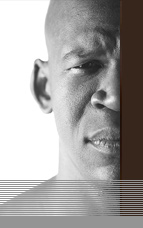Depression is a medical illness caused by chemical imbalances in the brain that make a person constantly feel sad, aloof, negative, and unmotivated. Depression can last for weeks, months, or even years. It can be caused by anxieties, certain situations, or nothing at all. Depressive disorder can affect people of all ages, including teenagers and children.
Young people often suffer from depressive disorders, which leaves parents with lots of questions such as: what causes it, and what can be done to treat depression? The good news is that depressive disorder is treatable and some of the best depression treatments come in the form of Neuro-Linguistic Programming techniques. In the past, it was believed that children and teens could not have depression, but the truth is depression can affect people of any age. Often, depression in young people is triggered by events such as changing schools, a relationship breakup, illness, a loss in the family, or abuse. In some people, depression has no external cause. Depression is often hereditary, meaning parents with depression are more likely to have kids who suffer from depression. There are several different forms of depression.
Most young people with depression have a form of major depression. This form affects a person's ability to enjoy life and engage in normal activities. Some people may also have a milder form of depression called Dysthymia, which is a long-term form of depression with milder symptoms than major depressive disorder. A rarer but still common form of depression is manic-depressive disorder (bipolar disorder), which is characterized by sudden mood swings from extreme sadness to extreme happiness. Depression can be a problem for adolescents because their symptoms vary slightly from the symptoms adults frequently display, making it more difficult to recognize and treat.
Often, young people with depression will not seem sad or "depressed" as one would find in adults. Constant irritability is usually one of the major signs of depression in young people. Signs of depression can be subtle, but may include constant sadness, difficulty sleeping, low energy, and decreased interest in things they used to love doing.
Children with depression may have trouble with schoolwork, have difficulty-making friends, or have disciplinary issues. The effects are also pronounced for teens, who may use alcohol and drugs to escape their depression. Depression is no one's fault, but people with depression do have the ability to seek treatment and find out how to successfully cope with their depression. Depression treatments can range from therapy and counseling, to the use of antidepressant drugs. Group psychotherapy can be helpful for teenagers and older children by providing a safe place to share their feelings with their peers. Online services such as forums for teen depression can also provide information on depression and serve as an outlet for depressed teens.
Behavioral counseling can help teach people of all ages how to handle their depression. Counseling can help families understand what causes a child's depression. Family counseling helps educate parents on why their child has depression and what they can do to help. In some cases, antidepressants or antipsychotic medications are prescribed.
This is only done under the supervision of a physician who will monitor the child's health and mental state. Even though people with severe depression may have a need for medications, these drugs can have undesirable side effects, especially in sensitive and still-developing adolescents. This is why counseling, support and understanding from parents and professional therapists, and the use of techniques that help young people learn how to relieve their own depression are considered to be better for helping children and teens with depression. Neuro-Linguistic Programming (NLP) practices can be used to treat tension, stress, and depression. They help people form safe and positive coping mechanisms for handling depression.
It is appropriate for everyone because it is safe, does not require the use of any drugs, and is a helpful form of self-help. One NLP technique used to relieve depression is the NLP Flash. This technique trains the unconscious mind to use the feelings that create stress and depression as triggers for thoughts that relieve depression. It is a technique that even children and teens can learn to use to help them cope with their depression. People with depression need not suffer. Therapeutic treatments can help depressed people of all ages live better.
NLP techniques are perfect for helping young people and their families cope with tension and depression. These techniques can reduce or even eliminate depression in people of all ages.
Alan B. Densky, CH is a certified hypnotist and NLP Practitioner. He has helped thousands of clients since 1978. He offers CDs for self-hypnosis depression therapy. Visit his Neuro-VISION self hypnosis site for the hypnosis article library, or watch his free video hypnosis collection. http://www.neuro-vision.us/


